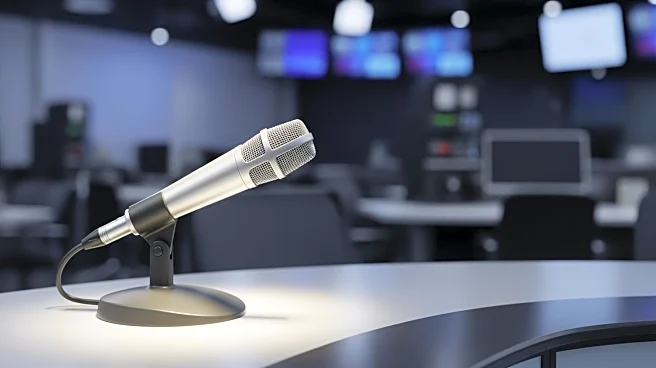What's Happening?
The BBC is undergoing significant leadership changes following the resignations of Director-General Tim Davie and News Chief Deborah Turness. The resignations come amid accusations of bias in the editing of the documentary 'Trump: A Second Chance,' which
allegedly manipulated quotes from President Trump's speech before the January 6 Capitol storming. The controversy has sparked discussions about journalistic integrity and the impact of editing decisions in the media.
Why It's Important?
The BBC's leadership changes highlight the challenges media organizations face in maintaining credibility and trust in an era of heightened scrutiny and political polarization. The controversy underscores the importance of ethical journalism and the potential consequences of perceived bias in news reporting. This situation reflects broader concerns about media influence and the role of editing in shaping public narratives.
What's Next?
The BBC may implement new policies and practices to ensure transparency and accuracy in its reporting, particularly in politically sensitive content. The network might also engage in public dialogue to rebuild trust and address concerns about bias. Other media organizations may take note of the BBC's experience and reassess their own editorial standards and practices.
Beyond the Headlines
The controversy surrounding the BBC's documentary editing raises questions about the ethical responsibilities of media organizations and the impact of political pressures on journalistic practices. This situation highlights the need for ongoing discussions about media accountability and the role of technology in shaping news content.

















